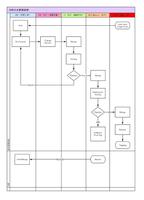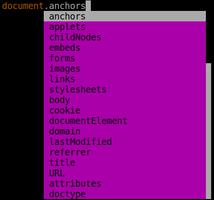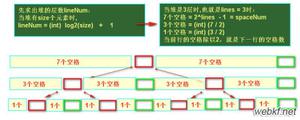后端代码规范

- 实体命名规范
***代表具体的业务名称实体类:***Entity (与数据库映射持久类Persistent,类必须添加@Table注解并写好表名)
视图类:***VO(接口返回前端数据模型 Value Object)
传输类:***Dto(前端传过来的数据模型 Data Transfer Object)
DAO层接口类:Dao (通用的dao操作方法,接口有默认方法 defaultIdColumnName返回默认的id列名,id列名可以实现idColumnName方法修改)
DAO层基类:BaseDao (dao层公用的工具类)
DAO抽象类:AbstractDao (继承BaseDao,实现Dao接口)
DAO层接口实现类:***DaoImpl(继承AbstractDao)
service层接口类:***Service
service层接口实现类:***ServiceImpl
控制层:***Controller
- 数据库字段类型规范
主键( _id )字段:String启用( enabled )字段:boolean
状态( status )字段:String
排序( showOrder )字段:int
优秀级( priority )字段:int
创建人( creator )字段:String
创建时间 ( createTime )字段:LocalDateTime
修改人 ( modifier )字段: String
修改时间 ( modifyTime )字段:LocalDateTime
- 接口命名规范
添加( create、add )根据id修改 ( modifyById、updateById )
根据id查找( findById )
分页( findByPage )
根据id删除 ( deleteById )
- 统一返回类型( ResultVO<T> )
/** * 错误代码
* success: 200
* error: 500
* exception: 700
*/
public int code;
/**
* 返回结果
* success: 成功
* error: 失败
* exception: 异常
*/
public String message;
/**
* 错误详细信息
*/
public String detail;
/**
* 范型
*/
public T result;
- 查询规范 (***Example)
NodeExample.java
public class NodeExample { private Bson bson = null;
public Bson getBson() {
return bson;
}
public NodeExample andIdEq(String id) {
if (bson == null) {
bson = Filters.eq("_id", id);
} else {
bson = Filters.and(bson, Filters.eq("_id", id));
}
return this;
}
public NodeExample andIdNe(String id) {
if (bson == null) {
bson = Filters.ne("_id", id);
} else {
bson = Filters.and(bson, Filters.ne("_id", id));
}
return this;
}
public NodeExample orIdEq(String id) {
if (bson == null) {
bson = Filters.eq("_id", id);
} else {
bson = Filters.or(bson, Filters.eq("_id", id));
}
return this;
}
public NodeExample orIdNe(String id) {
if (bson == null) {
bson = Filters.ne("_id", id);
} else {
bson = Filters.or(bson, Filters.ne("_id", id));
}
return this;
}
public NodeExample andNameEq(String name) {
if (bson == null) {
bson = Filters.eq("name", name);
} else {
bson = Filters.and(bson, Filters.eq("name", name));
}
return this;
}
public NodeExample orNameEq(String name) {
if (bson == null) {
bson = Filters.eq("name", name);
} else {
bson = Filters.or(bson, Filters.eq("name", name));
}
return this;
}
public NodeExample andNameNe(String name) {
if (bson == null) {
bson = Filters.ne("name", name);
} else {
bson = Filters.and(bson, Filters.ne("name", name));
}
return this;
}
public NodeExample orNameNe(String name) {
if (bson == null) {
bson = Filters.ne("name", name);
} else {
bson = Filters.or(bson, Filters.ne("name", name));
}
return this;
}
public NodeExample andNameLike(String name) {
if (bson == null) {
bson = Filters.regex("name", name);
} else {
bson = Filters.and(bson, Filters.regex("name", name));
}
return this;
}
public NodeExample orNameLike(String name) {
if (bson == null) {
bson = Filters.regex("name", name);
} else {
bson = Filters.or(bson, Filters.regex("name", name));
}
return this;
}
}
以上是 后端代码规范 的全部内容, 来源链接: utcz.com/z/511788.html







